This post is also available in:  Deutsch (German)
Deutsch (German)
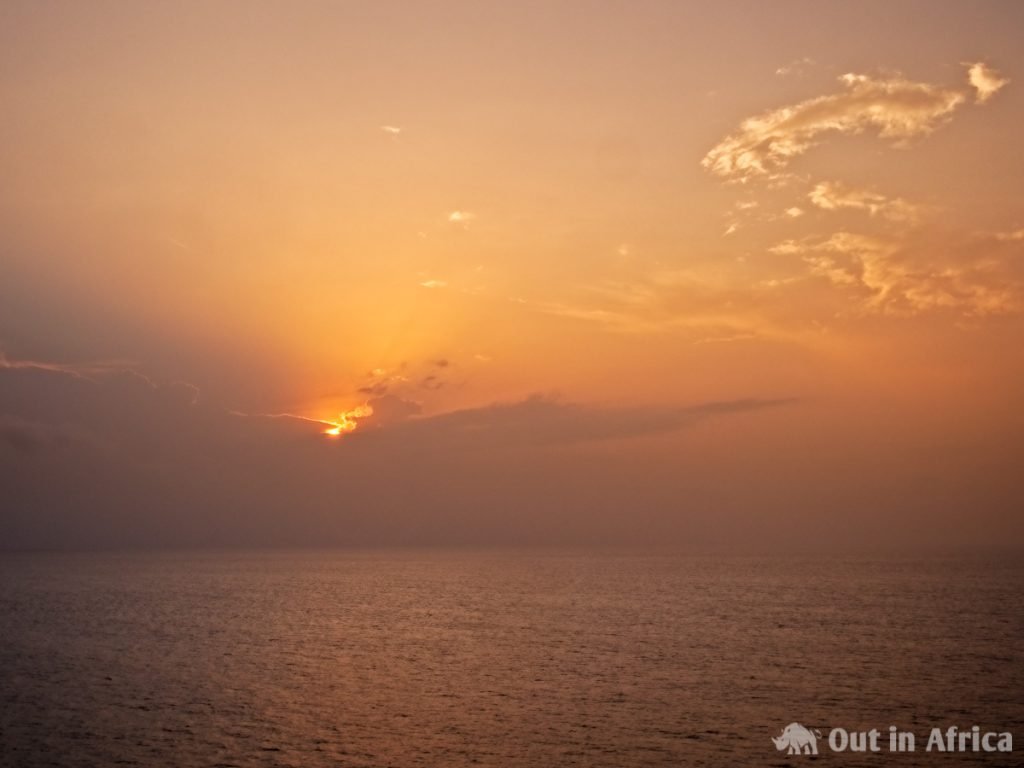
I wake up around 6:00 with a headache, and I am very thirsty. Maybe I shouldn’t have mixed up the different kinds of alcohol.
When I come to the officers’ mess for breakfast at 7:40 am, nobody is there. Even Robert is not in his little galley. The cook stands in for him and asks if I want a Frankfurter sausage. I don’t feel like it at all and confine myself to a slice of bread with jam and a piece of fruit. Shortly afterwards, Robert, who was probably busy elsewhere in the ship, arrives and brings me another cup of Nescafé.
I’m almost done by the time the captain and Chief Officer join me. The party had gone until 3:00. No wonder nobody comes for breakfast.
Pierre arrives shortly after. He doesn’t have a headache, which speaks for the quality of the wine that was served yesterday.
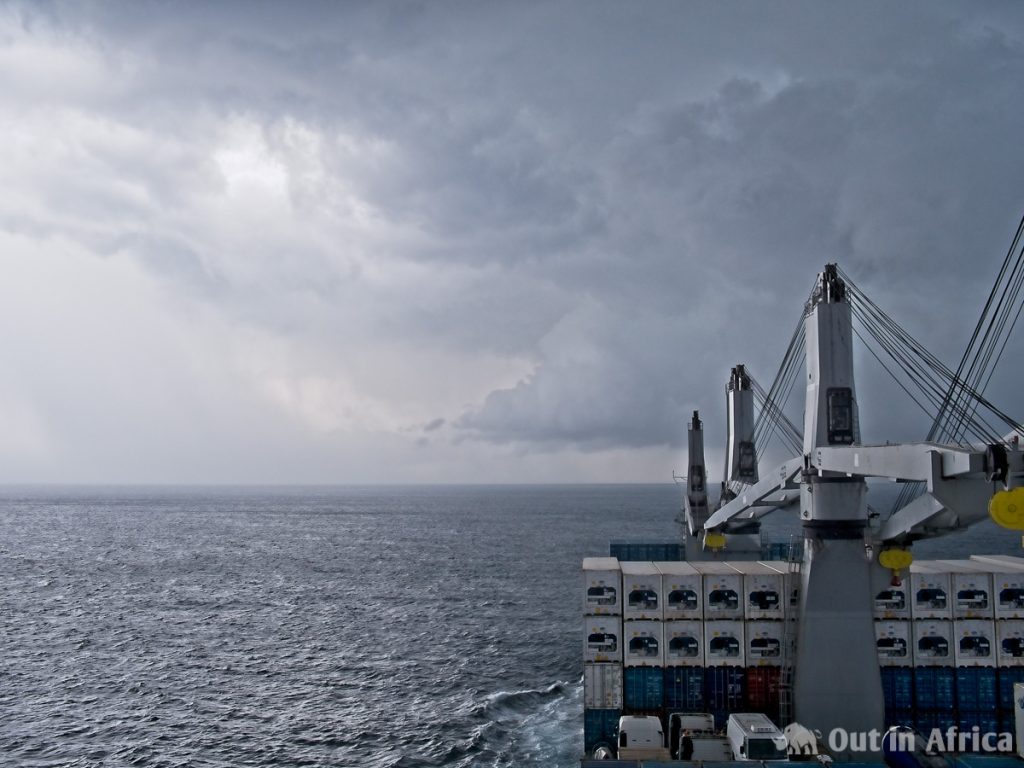
I go up to the bridge. The weather has changed. Thunderstorm clouds are in the sky. It is very humid and warm. I decide to change again before I go to the bow. I have to get a pair of shorts.
Somehow the way forward is more difficult today than usual. The stairs are higher, the ladder even more tilted than it already is.
It is striking that the iron ladders to any hatch on this ship are not vertical but tilted forward. They are steeper to climb than a regular vertical ladder. I asked the captain if there was a reason for this. Maybe sailors like overhanging ladders more than normal ones? His explanation for the overhanging ladders was that the ship was built in China.
There is not much to see at the bow. The wind has turned and comes from the side. The water is turbulent. A few flying fish are on the move, but under these circumstances, they cannot fly as far as yesterday.
A threatening thunderstorm is approaching, and I decide to go back before it starts raining. I report back on the bridge and stay there to watch the storm.
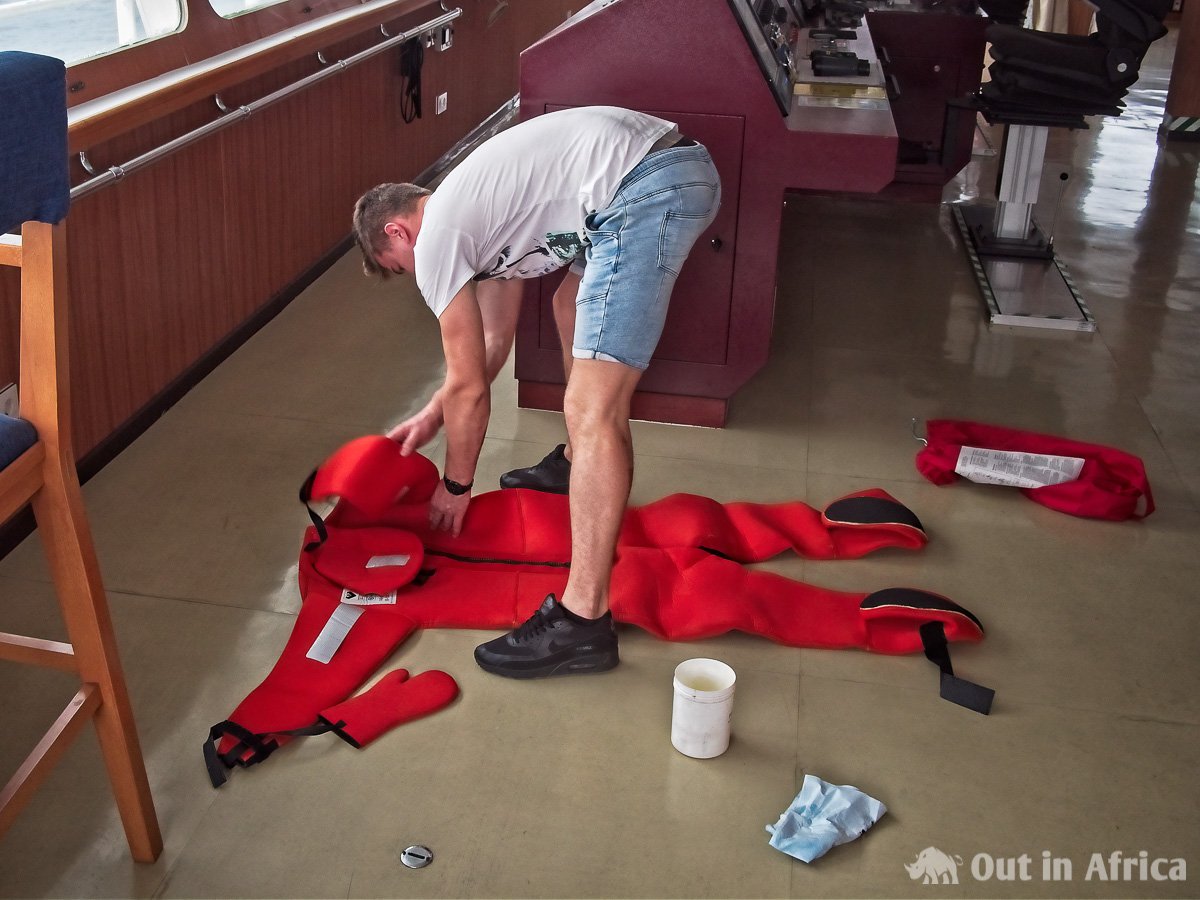
The Third Officer is on duty. There are red bags all over the bridge. Inside are the crew’s neoprene survival suits. The Third Officer unpacks them and checks the outfits for holes. He then lubricates the large zipper in the front with grease. This ensures that it is always ready. In an emergency, every second counts and then nobody wants to fiddle with a jamming zipper.
I ask the Third Officer when we will cross the equator. I somehow thought that it would be today. No, he says, tomorrow. He can pretty much determine the event with the navigation system. If we take the current course and keep the speed (as is planned), we will reach the equator tomorrow at 15:43.
I say that I would like to photograph the ship’s navigation device at the moment when all the latitude digits are zero. The Third Officer pulls out his smartphone and shows me exactly the photo of his first equator crossing.
In the afternoon, I sleep for an hour. I feel much better afterwards.
Next, I sort out my photos of the flying fish from the day before. Of the more than 500 pictures, 21 are left.
Later I again stand on the bow balcony. The sky is covered with dark clouds. We are here in the area of tropical thunderstorms. Because so little light comes through from the sun, the water is dark. This makes photography harder.
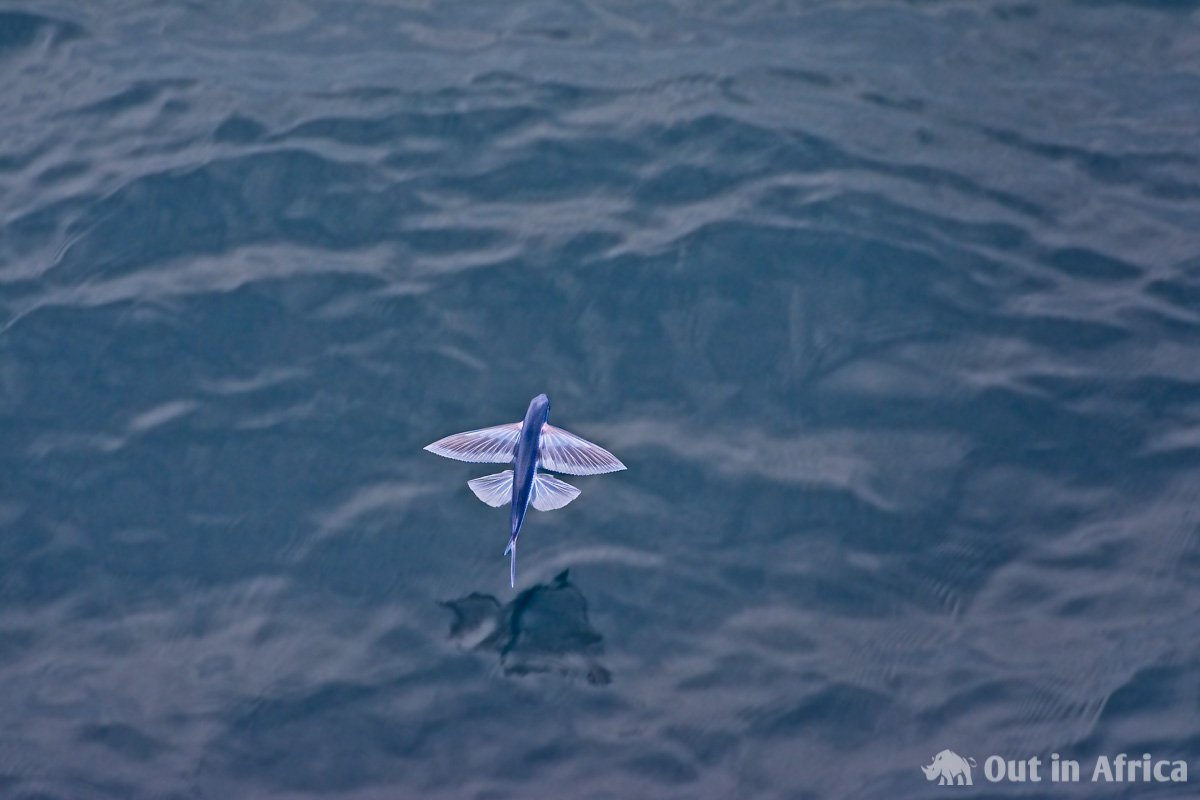
But there is not much to photograph, only, from time to time, a few flying fish. I can see no whales, sharks or dolphins. Pierre sighted another bird. I saw a white bird in the morning when I looked out of the window. But while I am standing at the bow, no bird flies by.
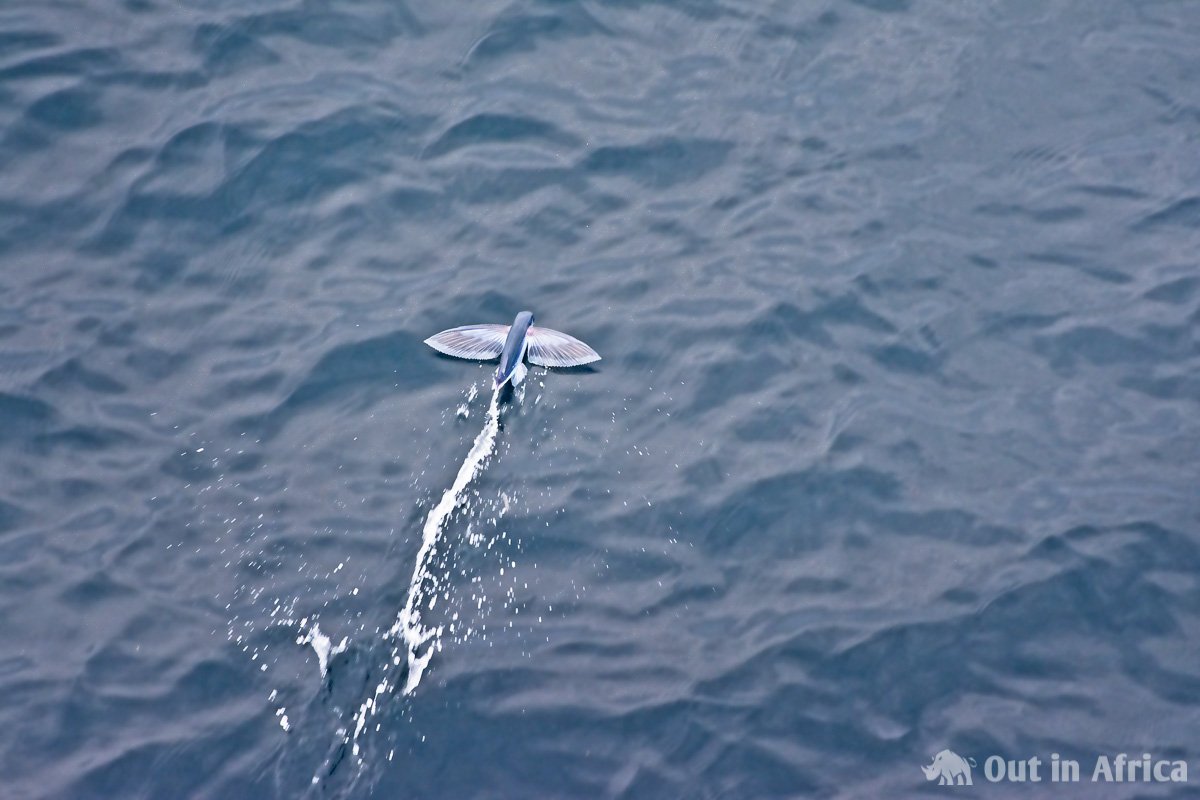
The sea is smooth, but not uniform. Sometimes there are areas with more waves. Sometimes more light comes through and makes the water glow. From the bow, I can see several such regions of different structure or colour. The darker surfaces look as if they are deeper than the brighter ones. It is just an illusion that gives the impression that we are driving through a flat landscape that changes again and again.
I see a lot of garbage. Water bottle, shampoo bottle, metal bottle, shower gel bottle, another water bottle, toothpaste tube. Has someone lost their toiletry bag? In between, again and again, styrofoam. Then a long tree trunk. Sometimes there are extended areas on which green-yellow water plants swim. A lot of garbage has collected on and inside them.
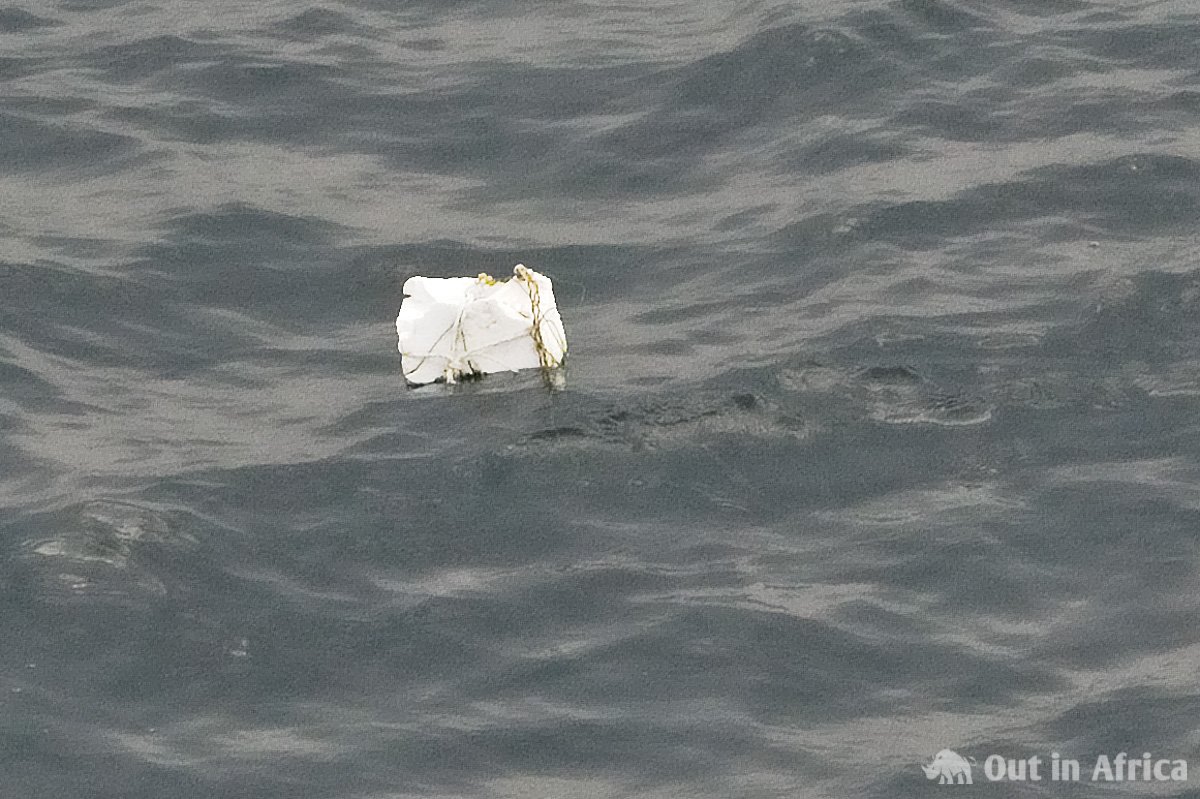
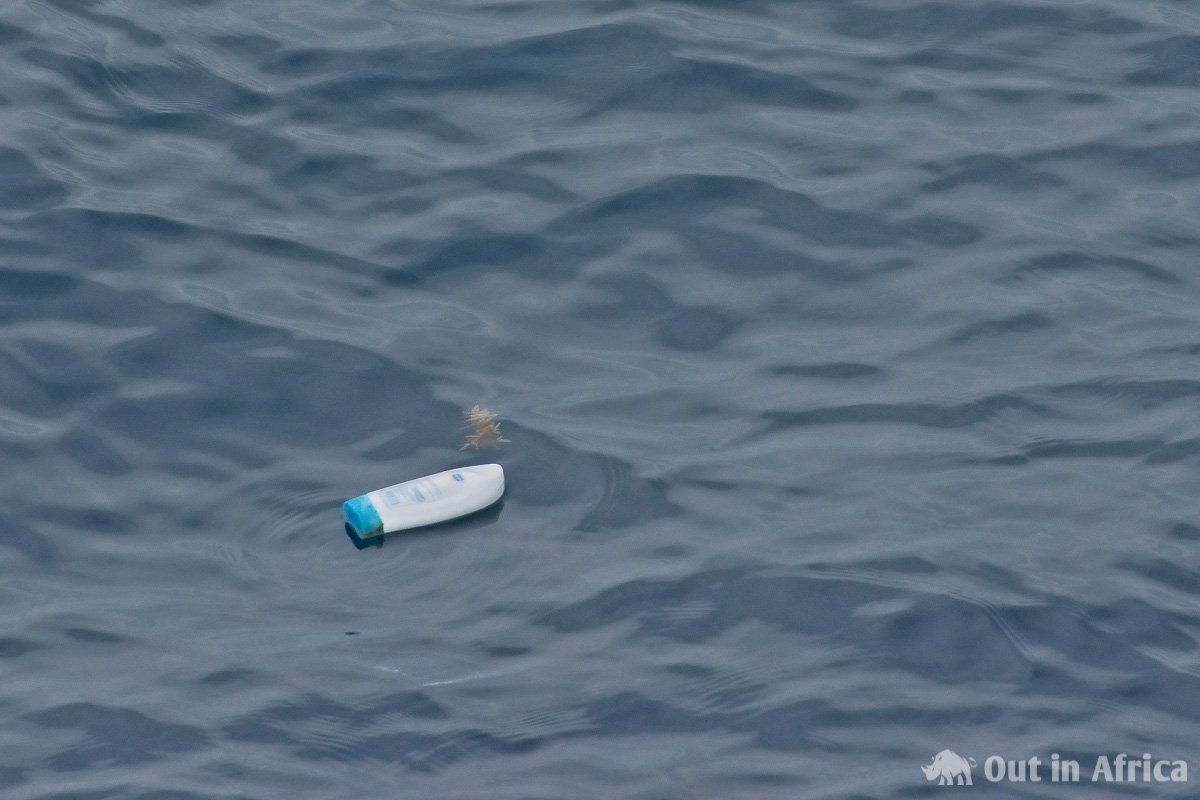
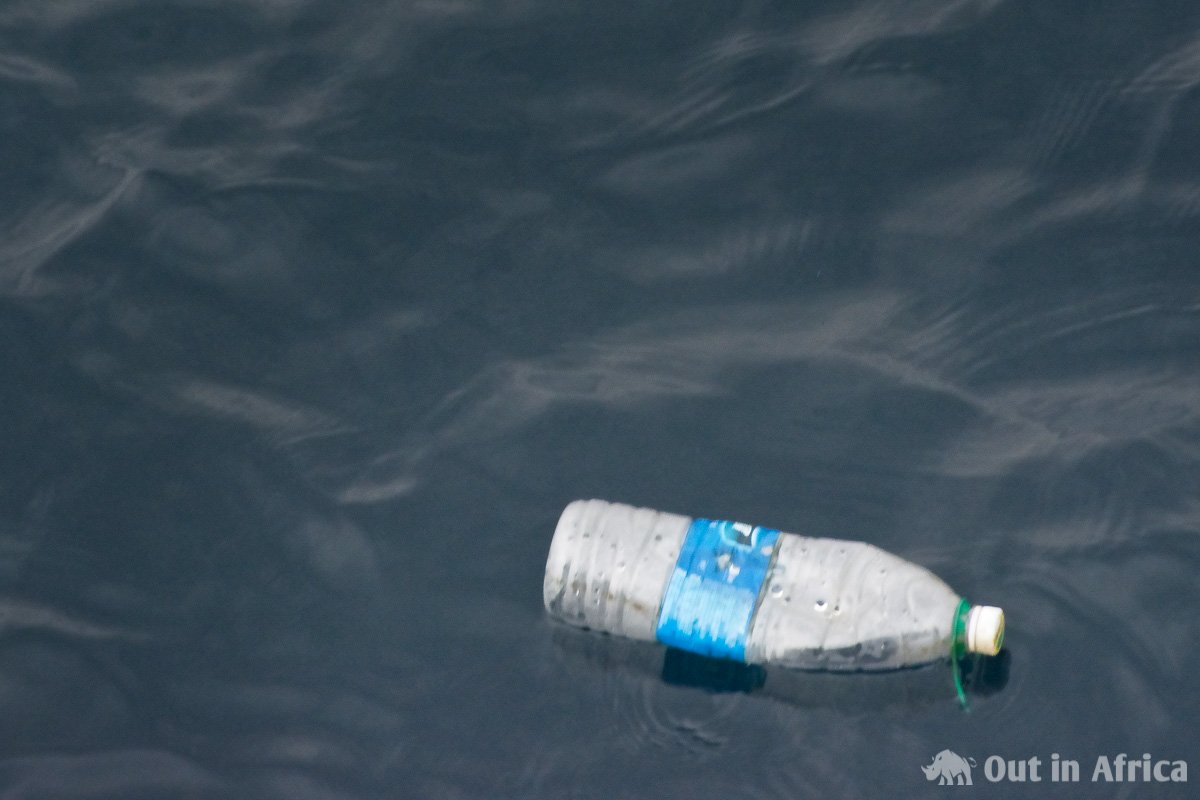
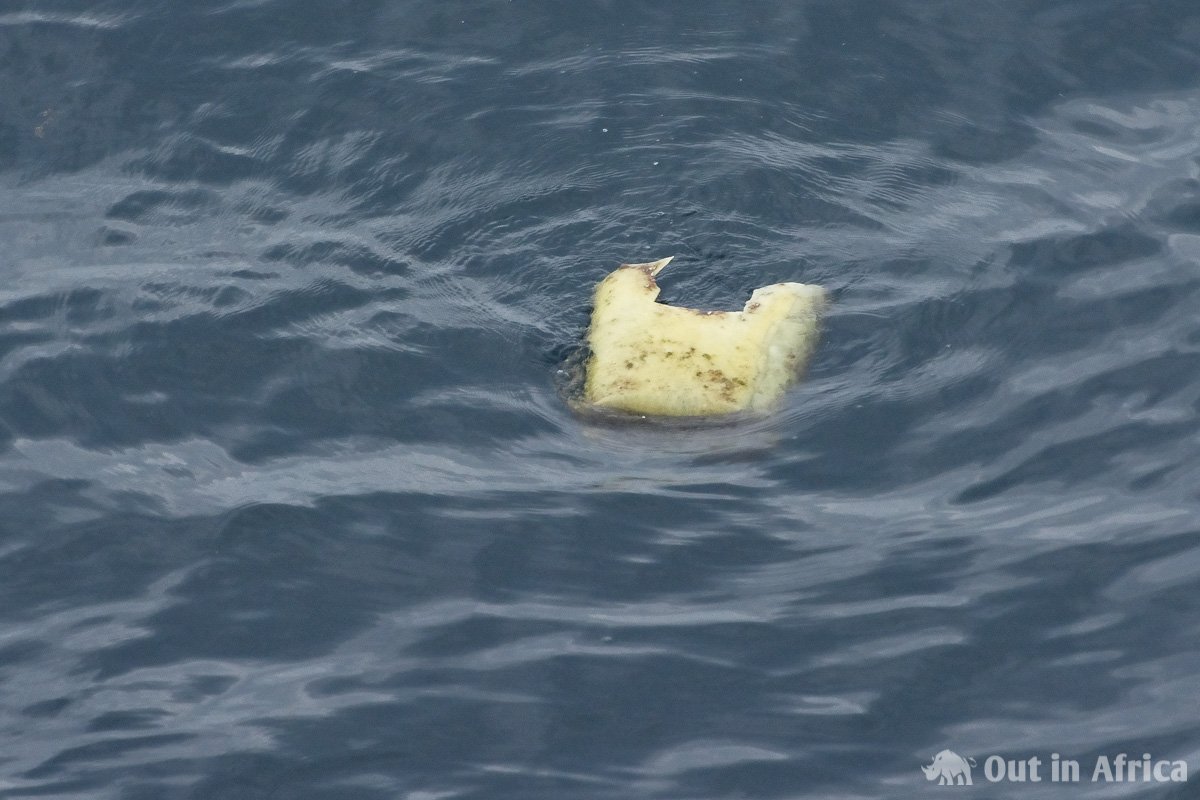
Pierre joins me for a few minutes. He saw a coconut today. I also want a coconut, not this rubbish dump.
We talk about taking pictures with garbage on it. Pierre says that he only wants to shoot pretty pictures, photos without trash on them.
I think about that for a while. On the one hand, I have already retouched garbage from photos. I wanted a beautiful landscape, and I didn’t want it to be blemished. On the other hand, I also photographed a Coke can in the middle of the Kaokoveld because it was the total contrast.
If I only take beautiful photos that show an intact world without trash, do I show the world as it is?
Basically, Pierre and I agree. He tells me that in the Swiss mountains, he always finds litter by the wayside. “They carry the full can in their backpacks. Why can’t they put the empty can back in the backpack and then dispose of it at home?” That’s how I think as well.
I think that people will no longer spoil nature if they love and care for it. Those who don’t care about nature leave their cans at the next opportunity. But those who perceive beauty will not spoil it. And beauty can also be brought closer to people when they see beautiful photos. That would speak again for Pierre’s view.
But: Hikers in the Alps love nature. Otherwise, they wouldn’t be walking in it with a heavy backpack on their backs. Nevertheless, they leave their garbage behind instead of packing it back in their pack. The recognition of beauty and love for nature does not guarantee that they will not spoil it.
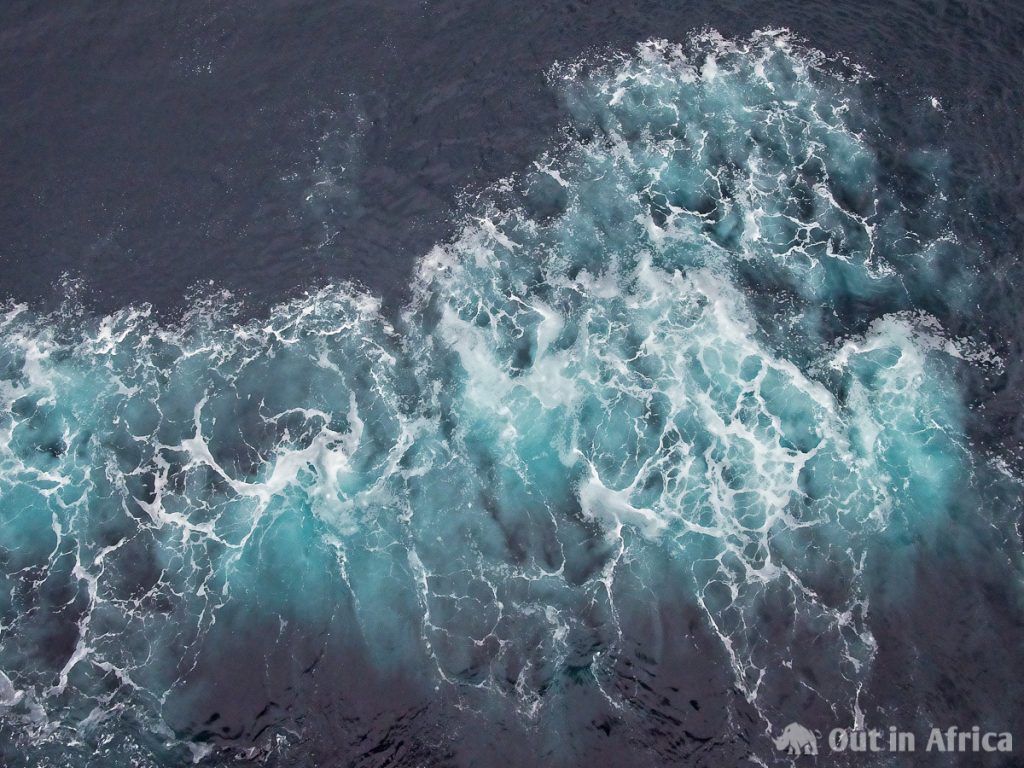
Later, when I report back on the bridge, the captain asks if I have seen anything exciting. “Only garbage, I say. He zooms out from the nautical chart on the navigation device. We are currently in a current from the southeast that collects all the garbage in the Gulf of Guinea. Tomorrow we will be out of the current. Then it will get better again.
It’s going to be more beautiful, not better. We won’t see the garbage anymore. But it will still be there.
For dinner, we have apple pancakes with icing sugar and canned fruit. The captain is upset. He is on a diet. We already noticed this during the previous meals: when we ate grilled chicken with chips, he got half a broccoli – undoubtedly delicious. Only at our barbecue did he allow himself to eat the full menu. But now it is no longer a barbecue. “Oh, they look delicious,” says the captain. They are excellent. Robert brings him his plate of steamed fish. Resigned, he begins to eat.
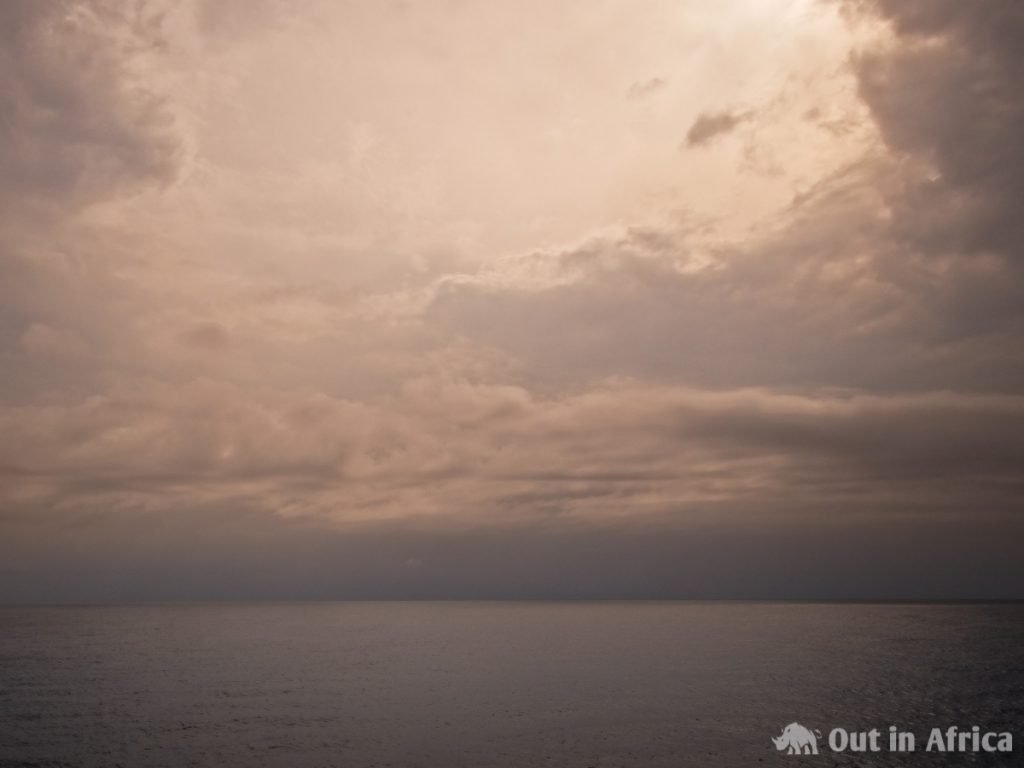
Like every evening at 22:00, I look at my smartphone to see where we are on the Atlantic Ocean. We are at N3° 16.563′ W11° 15.466′ The next land is Liberia. It is 300 km away from us. There is still 3967 km to Walvis Bay. Now we are going on the direct route to there.
Now I cannot calculate in weeks anymore when I will reach Namibia. In seven days, I will already be in Walvis Bay.
Would you like to see an overview of all articles about my journey on the cargo ship Bright Sky? Click here for a table of contents.
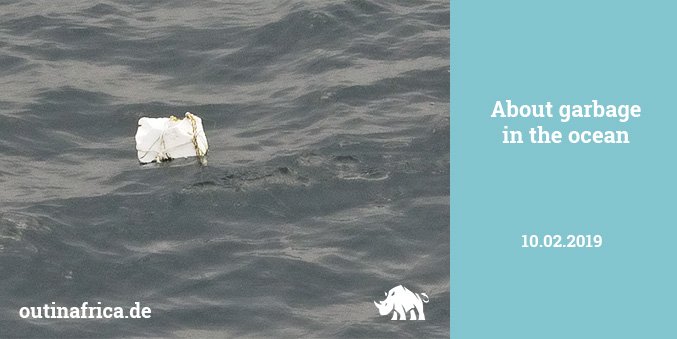
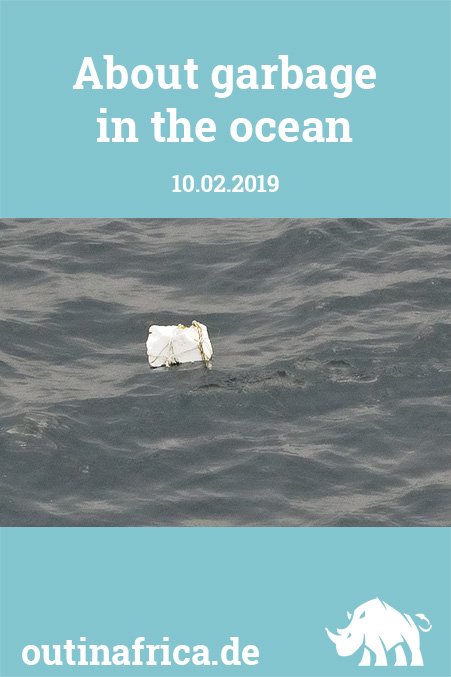

Leave a Reply